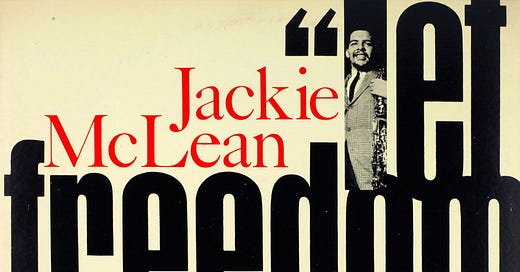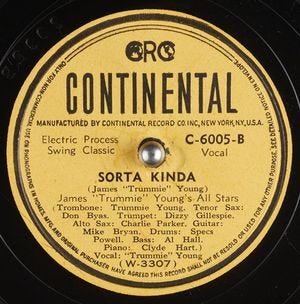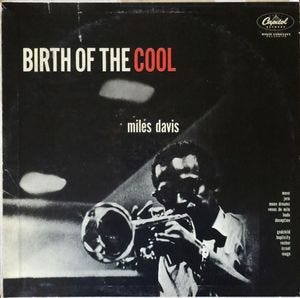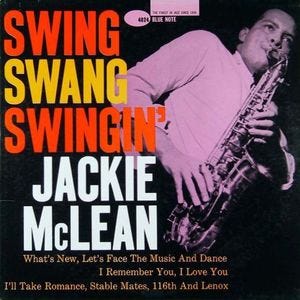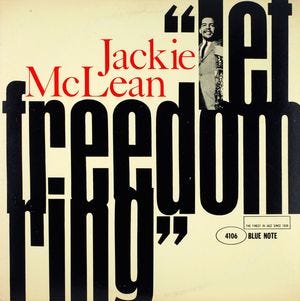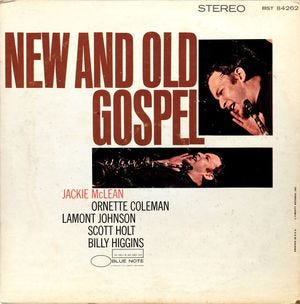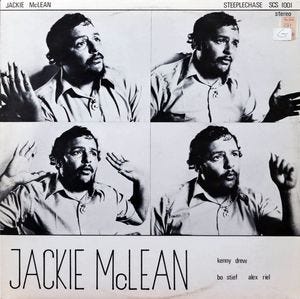Some Jazz Records: Jackie McLean Clippings
Comments on recordings from musicians and other actors of the jazz scene. Random and not-so-random listening cues from the archives.
James "Trummy" Young’s All-Stars, Seventh Avenue/Sorta Kinda, Continental C-6005, 1945, 10" 78 rpm.
A large part of Jackie McLean’s career was devoted to teaching, starting roughly with the 1970s, when everything still had to be thought up in terms of jazz’s existence inside higher education. With students, McLean used his own history. "I help develop their concept by letting them experience what I experienced, what I heard, what I listened to, and what made me begin to develop," he told the Smithsonian Jazz Oral History Program. "I bring it to them. Same recordings, same stuff. All the recordings that I first listened to, from the first one." The very first Charlie Parker recordings McLean heard, as a teenager helping out at the record shop his stepfather operated, were those two sides from 1945. Parker solos for just a few bars, but "that sort of changed my whole concept," McLean told Val Wilmer.
Miles Davis, Birth of the Cool, Capitol T-762, 1957, LP.
When the opportunity to make a commercial recording came up in the late 1970s, Jackie McLean gave it a shot. His crossover LP, Monuments, unsurprisingly did not lead him to stardom, despite some efforts invested into its promotion. Asked by Down Beat contributor Richard Brown what funk and fusion he actually listened to, the altoist pulled LPs by Ralph MacDonald and Funkadelic. But what he eventually ended up playing for Brown was Miles Davis’s The Complete Birth of the Cool, which he described as his "all-time favorite album." The classic Davis recordings issued by Capitol under that title were made in 1949-50, a couple of years before McLean himself made his debut on disc with Davis
Jackie McLean, Swing, Swang, Swingin', Blue Note BLP 4024, 1960, LP; and Jackie McLean Let Freedom Ring, Blue Note BLP 4106 (BST 84106), 1963, LP.
Jackie McLean recorded a whole lot for Blue Note between 1959 and 1967, enough for the label to put out fifteen albums under his name. In a 1990 Coda interview, bassist Mike Johnston asked McLean about a recent wave of reissues. The saxophonist stressed that his early work was put to tape during difficult times when sessions had to be rushed and he didn’t have constant access to a saxophone, leading to mixed feelings about this part of his discography. "Well, I like all of the things that I did with Freddie Redd," McLean answered when asked if certain dates did stand out nonetheless. "I like my early recordings with Miles Davis and I also enjoy the things that I did with Art Blakey. As with the recordings under my name, some are very memorable. Let Freedom Ring and the album I did all standards on, Swing, Swang, Swingin'."
Jackie McLean, New and Old Gospel, Blue Note BLP 4262 (BST 84262), 1968, LP.
Nearly nothing can be filed under the "sideman" heading in Ornette Coleman’s discography. This 1967 Jackie McLean session during which Coleman exclusively played trumpet, an instrument he had taken up just a few years prior, is a notable exception. Asked about unreleased material featuring both him and Coleman on alto, McLean clearly denied the rumors to Jazz Hot's Laurent Goddet in 1972. But he did indicate that it was what he originally had had in mind, adding that the Coleman session still turned out to be one of his favorites. Shortly after McLean’s death in 2006, the notes for a CD reissue added another rumor around the album: Cecil Taylor would have been asked to take part but had declined because of Coleman’s use of the trumpet. A rather unlikely scenario.
Jackie McLean, Live at Montmartre, SteepleChase SCS-1001, 1972, LP.
A long hiatus followed Jackie McLean’s years as a Blue Note artist. Deciding that he would only work on his own terms and for the right price, the saxophonist essentially deserted the record industry. He returned to it by way of its outer margins, during a visit to Denmark in 1972. McLean helped student Nils Winther launch a small independent label, SteepleChase, by agreeing to the release of live recordings made at the Jazzhus Montmartre club. Talking to Jazz Magazine shortly afterwards, McLean said that the move had been about "love," not money, and that he still considered he had done enough recordings for a lifetime. A number of other SteepleChase albums nonetheless followed, substantial additions to the McLean discography.

